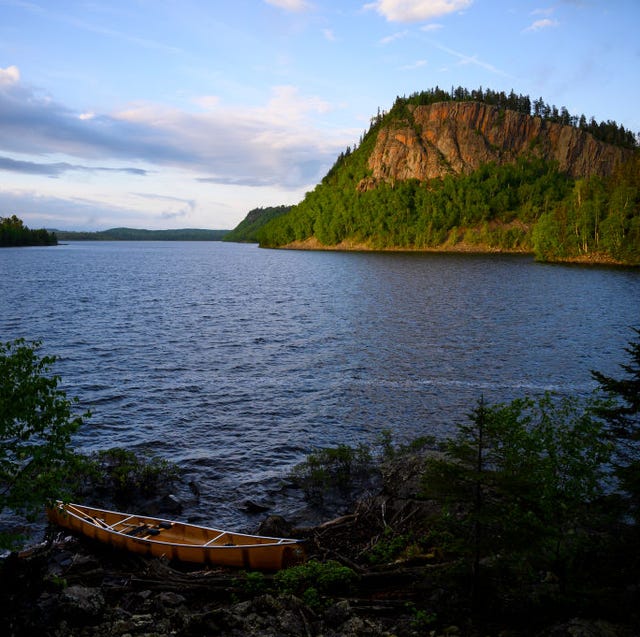There aren't five more beautiful places in America than the Boundary Waters area in northern Minnesota. Unfortunately, beneath the ground in that area are all sorts of minerals that make, say, Chilean mining conglomerates drool into their ceviche. For years, local environmentalists have held off a proposed Twin Metals mine, which had some federal leases in the area. (Twin Metals is a subsidiary of Antofagasta, the massive—and massively controversial—Chilean corporation.) The current administration put the kibosh on those leases and now has moved to put a huge part of the Boundary Waters area off-limits for decades. From the Minneapolis Star-Tribune:
The Biden administration has withdrawn some 225,000 acres of national forest land in northern Minnesota from mineral leasing, protecting a swath of the watershed that adjoins the Boundary Waters Canoe Area Wilderness. The decision follows a 16-month review on whether the minerals lying under Superior National Forest should be open to extraction. The Department of Interior concluded the land should be protected for 20 years, the maximum possible without congressional approval. In a study released in 2022, the U.S. Forest Service concluded that hard-rock mining on the land risked contaminating the Boundary Waters, even with mitigation measures in place. Superior National Forest is part of the Rainy River watershed, which flows into the Boundary Waters. It is also part of land ceded in an 1854 treaty by Ojibwe tribes in Minnesota, and members of these bands retained rights to hunt, fish and gather on these lands. "Protecting a place like Boundary Waters is key to supporting the health of the watershed and its surrounding wildlife, upholding our Tribal trust and treaty responsibilities, and boosting the local recreation economy," Interior Secretary Deb Haaland said in a statement Thursday.
Haaland is one of the true workhorses of this administration, especially in the area of reclaiming the federal government's prerogatives over public lands. As the S-T points out, the administration last week put 9 million acres of Alaskan rainforest off-limits to logging, mining, and road building. This latest action on the Boundary Waters area is of a piece with that action. There is muscle behind the country's environmental preservation policies now.
Conservation groups have long argued that mining for copper, nickel and other metals could spoil the natural beauty and health of the Boundary Waters, more than 1 million acres of the country's most-visited federal wilderness. While Minnesota has a long history of iron mining, hard-rock mining for other metals would be new to the state and brings the risk of environmental damage from acid mine drainage. "This is the most important land conservation victory for the Boundary Waters in 45 years," said Becky Rom, national chair of the Campaign to Save the Boundary Waters. She noted that 45 years ago, Congress banned mining within the wilderness itself. "You don't let the most polluting industry in America operate next to a pristine wilderness that contains an abundant supply of the cleanest water in the country. This is common sense," Chris Knopf, executive director of Friends of the Boundary Waters Wilderness, said in a statement.
In addition, Haaland, the first indigenous American to serve in a president's Cabinet, has been a clarion voice in defense of tribal sovereignty and in defense of long-ignored treaty rights, which has informed the administration's stewardship of the public lands as well—much to the consternation of Republicans in Congress.
In a statement, Republican U.S. Rep. Pete Stauber, whose district covers the area where mining is now stopped, called the decision "an attack on our way of life." "I can assure you that this Administration, from the President to the Forest Service, to the Interior Department, will answer for the pain they elected to cause my constituents today," Stauber said.
How stopping a mine that has yet to be built constitutes an attack on anyone's "way of life" is a question better left for subtler minds than mine. Stauber, moreover, was a professional hockey player, then a sporting goods salesman, and he's been on a government check in one way or another since he became a cop in Duluth in 1995, so his "way of life" is not threatened by anything except budget cuts. He was, incidentally, vocal in his opposition to Haaland's appointment to head the Interior Department in the first place. He lost. The Boundary Waters won.

Charles P Pierce is the author of four books, most recently Idiot America, and has been a working journalist since 1976. He lives near Boston and has three children.













